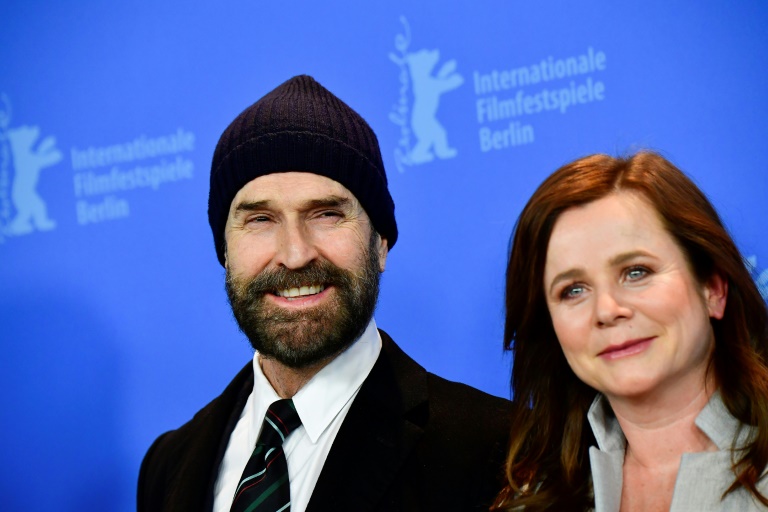‘Malema has created a militant style of leadership in the EFF’
Everett penned, directed and starred in his years-long passion project about the flamboyant 19th century Irish writer, “The Happy Prince”, screening this week at the Berlin film festival.
The 58-year-old British actor focuses in the film on Wilde’s self-imposed exile after serving two years’ hard labour from 1895 on “gross indecency” charges for sex with men.
Such convictions were only wiped from the British books last year for some 70,000 men who had criminal records simply for being homosexual, Everett notes at the end of the film.
“The gay liberation movement really started with the Oscar Wilde scandal,” Everett told reporters.
Set in Paris, Naples and the north of France, the movie weaves flashbacks from Wilde’s heyday as the toast of London’s theatre scene with his life’s twilight as a vagabond racked by poverty, alcoholism and illness.
– ‘Run towards ruin’ –
Wilde, Everett said, eschewed the option of simply going abroad to avoid his prison sentence because he wanted to ensure his own “immortality” as a “martyred” gay male writer.
“I do find that being a gay performer in cinema there’s many parallels between being an outcast or not ever being quite accepted into a milieu. So I think it’s definitely one of the things that drew me to try to tell the story,” Everett said.
“He’s an amazing Christ figure to me.”
Everett has been a trailblazer in the industry, playing gay characters since the 1980s in movies such as “Another Country” and “My Best Friend’s Wedding” opposite Julia Roberts, while speaking openly about his own homosexuality.
He had already appeared in two films and several plays about Wilde before making his directorial debut with “The Happy Prince”, which co-stars Colin Firth, Emily Watson and Tom Wilkinson.
Everett said the film, name for one of Wilde’s beloved fairy stories, set itself apart from previous depictions, including Stephen Fry’s 1997 acclaimed movie portrayal, by showing the “messier” side of the writer’s final chapter.

Emily Watson, who plays Oscar Wilde’s wife Constance in “The Happy Prince”, says she thinks her character loved her husband “to the end”
“He wrote once ‘Why does one run towards ruin, why does it hold such a fascination?’ I think that is the key to Oscar Wilde’s pre-Freudian, self-destructive nature,” he said.
“He walked into danger — that was the kind of cornerstone for me. He had a great Jesus-complex himself, he was fascinated by Jesus and Christianity and Catholicism.”
– ‘Assassinated for his sexuality’ –
Watson, who played his long-suffering ex-wife Constance, said Wilde’s irresistible charm and wit often saved him in desperate circumstances.
“He was somebody it was really difficult not to love, however cruel he was and however cruel the situation was, he had just a fire in him that was so attractive,” the 51-year-old British actress said.
“I think she (Constance) loved him to the end.”
The film project had long looked at risk, Everett said, until he managed to cobble together funding from Germany, Belgium and Italy. The actor speaks French and Italian in the movie along with Wilde’s polished English prose.
Everett, who has been outspoken in his criticism of ongoing homophobia in the film industry, said the Wilde story nevertheless underlined the strides made since his death.
“The LGBTQ community of today can take heart in this millisecond in our two-million-year history of humankind that this has happened — in 100 years which is no time at all that we’ve gone from a man basically being assassinated for his sexuality to where we stand now,” he said.
“I think we should take heart from that because it’s an amazing journey and Oscar is the beginning of it.”
Download our app and read this and other great stories on the move. Available for Android and iOS.